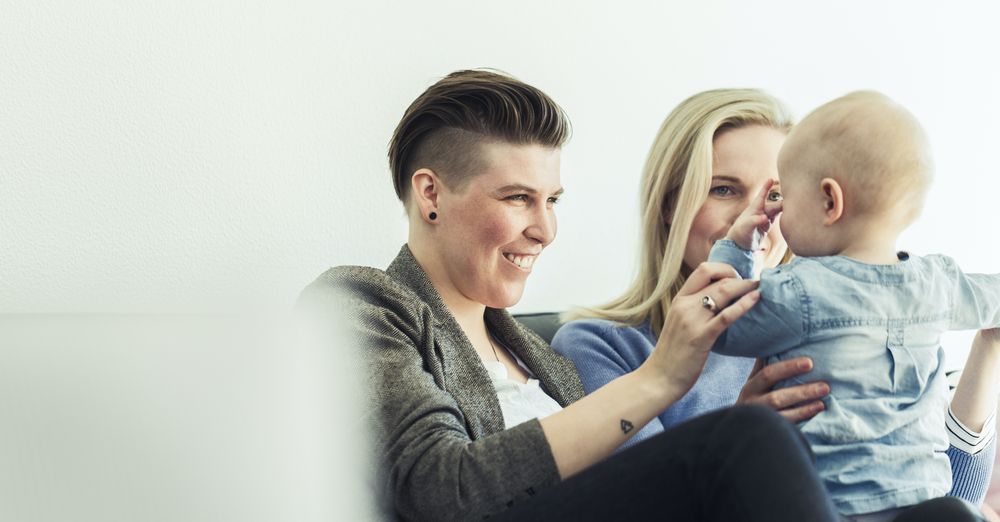Celebrating Diverse Families
Published on Tuesday, 17 September 2019
Last updated on Tuesday, 31 December 2019

Long gone are the days of a nuclear family being the norm. Children these days might have foster parents, half siblings, a single mum or dad, parents of the same sex, a blended family, multiple cultures and languages, grandparents as their guardians, and more.
It's important that all kinds of families are recognised and celebrated at your service to ensure that every child feels accepted and represented. Here are a few tips and ideas for creating an inclusive family environment in early childhood settings.
Know each child's family background
Take the time to familiarise yourself with the home life of each child in your care. Not only will it go a long way with the parents or guardians if you know and understand their child’s cultural and familial background and living arrangements, but it will also help you to identify potential issues before they arise and allow more opportunities for discussions and activities to take place with the child.
Make family orientated activities inclusive
Seasonal times of the year such as Father's Day, Mother’s Day, Valentine’s Day, Christmas and even Grandparents Day can be sensitive for children who might not have certain family members in their home life. Be mindful of each child's situation and encourage them to adjust any activities if required. For example, on Mother’s Day if they don’t have a mum they could do a card for their gran or aunt instead, and if they have both a mother and a stepmother they might want to do two cards. Or a Muslim child might prefer to do a different artwork in place of a Christmas activity. If you're unsure how to handle a particular situation it's best to communicate with the parents in advance to see if they have a preference for their child.
Incorporate diverse books into story time
Have a look at all the books in the book corner in your service. Do they involve protagonists from different cultures or with different family make-ups? If not, it might be time to purchase some new titles to add into the mix. There are lots of great picture books which depict children with family dynamics outside of the stereotypical Caucasian mum and dad with two kids living in suburbia.
Be careful with your language
It's quite easy for educators to naturally refer to 'mum and dad' when talking to children or doing role plays or in other scenarios. Be conscious of these patterns and change the narrative so it's not a set example of a typical family unit.
Include different dolls and characters
If you have a dollhouse in your service be sure to include different types of dolls so multiple races and family members are represented. If you have dress up clothes, add costumes from different cultures and backgrounds so there is a diverse range of options for kids to choose from.
Put up family pictures
Ask parents or guardians to bring in photos of their child’s family to be put up on the wall. Kids will love seeing their loved ones around the room and it's a great opportunity to lead discussions about different types of families and encourage children to talk about their own parents, grandparents, siblings and other guardians or family members.
Do drawings and craft around families
Ask children to draw themselves and their family members to display or take home. The more ways that kids can understand that each family is different yet still a family, the more accepted different home units will become. Other family themed arts and crafts might include drawing a family tree, paddlepop stick families, paper plate loved ones and more.
Invite families to be involved
Encourage parents and other family members to visit the centre regularly and participate in activities such as story time, cooking, excursions, or talks about their skills, interests or cultural background. Children love seeing their loved ones in their education setting and it's a great opportunity for kids to see first-hand other people’s families and learn new things.
Highlight the importance of family
Discuss how important loved ones and families are, regardless of their make-up or what they look like. It's never too early for children to be taught to respect and value not just their own family, but other people's families; and to understand that being different or having different people around you is a wonderful thing.
Related Articles

Bilingual teachers in demand
Recent changes in government policy may result in increased demand for bilingual teachers - particularly those who can speak Te Reo Maori or Pasifika languages.

How to celebrate indigenous languages in your centre
Languages link us to individual identity, traditional culture and memory, learn how to celebrate diverse languages in your service.

Celebrating Matariki and Māori New Year
Educational activities and fun ideas for celebrating Matariki with the children in your service.
